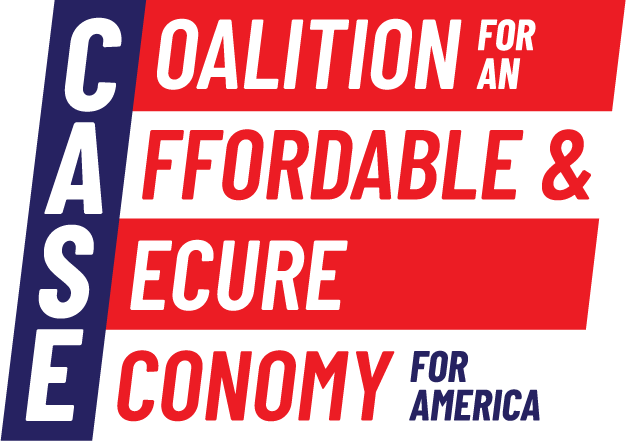Recent Polls Show Economy Worries Still Top of Mind for Voters
Less than four months after the November election, the rising costs of daily goods such as food, clothing and everyday household goods are still among top concerns for voters, according to a series of recent polling.
Consumer confidence hit an eight-month low in February, with concerns over harmful trade policies like tariffs topping the list of major issues for families and businesses alike.
New survey data and polling show an overwhelming consensus: Americans want relief, not higher prices.
According to research by the National Retail Federation (NRF), consumers can expect to pay billions more for everything from clothing to toys to household appliances as a result of tariffs. Americans are well aware of the potential consequences. Nearly two-thirds of Americans believe tariffs will lead to higher prices on everyday household items.
As leaders in Washington debate economic policies, these polls serve as a reminder that the impact to middle- and working-class families should be driving decision making. Voters are looking for solutions that make life more affordable – and they’ll be watching to see who delivers.
Key findings from the Washington Post-Ipsos Poll:
- Pessimism prevails on specific aspects of the economy, with more than nine in 10 expressing negative views about food prices and about three in four feeling negative about gas and energy prices.
- Most people have negative views about the economy, with more than 90% unhappy about food prices, about 75% concerned about gas and energy prices, more than 70% unhappy with average Americans’ incomes and a majority criticizing the unemployment rate.
- More than six in 10 Americans oppose tariffs on Canadian goods, and nearly six in 10 oppose them on Mexican products. Americans narrowly support (50% to 45%) the tariffs on China. Americans also see negative consequences from these actions.
- About seven in 10 say tariffs on products from Mexico, Canada and China will increase prices for those goods. Pluralities also say the tariffs would hurt U.S. workers and U.S. manufacturers.
Key findings from the Harvard CAPS-Harris Poll:
- When posed with the question,“What would you say are the most important issues facing the country today?” respondents said price increases/inflation was the top issue.
- Nearly one in two say Trump’s steel and aluminum tariffs will harm rather than help.
- A slim majority of voters say tariffs will help get concessions from other countries, but half say the specific tariffs issued by Trump will harm.
- Three in five support placing reciprocal tariffs on goods, but a plurality say this will harm rather than help.
Key findings from the Fabrizio Ward Poll:
- The cost of living is the top concern for both Trump voters and swing voters.
- Extending the Tax Cuts and Jobs Act (TCJA) is supported by a 21-point margin, receives majority support (51%) and is supported by a 17-point margin among swing voters.
- Around 59% of all voters are worried about their personal financial situation, with 53% of Trump voters and 61%of swing voters expressing concern.
- Among Trump voters, 65% are worried about their ability to afford groceries, while 72% of swing voters are most worried about this expense.
Key findings from the University of Michigan Survey:
- Only 16% of consumers expect their income gains to outpace inflation.
- More than half of consumers expect unemployment to rise in the year ahead, the highest share since the pandemic recession.
- “Consumers’ expectations for the path of inflation worsened considerably this month; they are clearly bracing for a resurgence in inflation,” economist Joanne Hsu, director of the University of Michigan’s Surveys of Consumers said.
###

